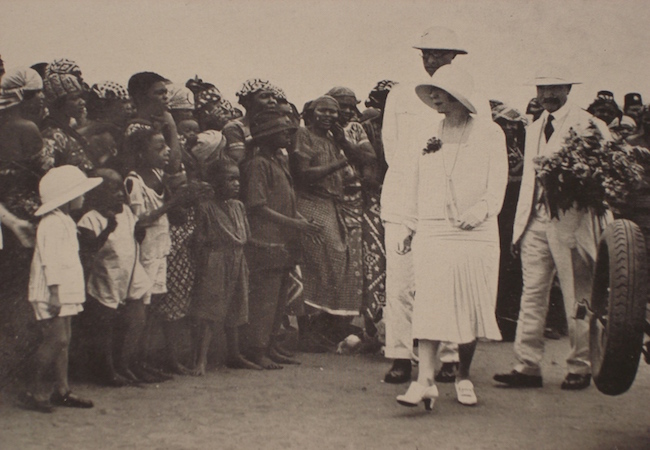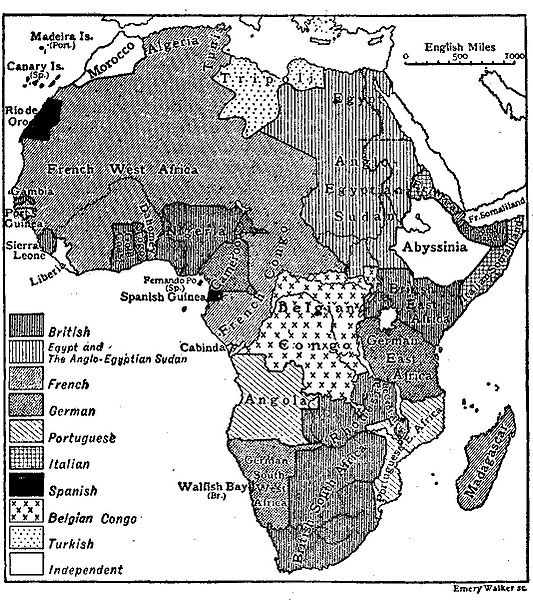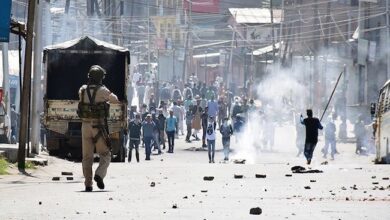
By Zahid Khan
Colonialism, which cited to the system of political and economic power by one state over another, had an gigantic bang on Africa—The bondage existed in Africa long before Europeans arrived. It formed nations and sculpted their political, economic, and cultural development. Rulers in Songhai and Mali had thousands of slaves. Villages assaulted one another to take detainee and sold them. Frequently, bondage could work to earn his or her freedom—The colonial practices outset in the late 1400s, when Europeans arrived and set up trading posts in Africa. European traders raided African towns and captured people. Europeans instigated a kind of slavery that ransacked African life and society. Some Africans captured in wars were sold to European traders by other Africans—From 1520 to 1860, about ten to twelve million Africans were enforced into the slavery. They were sent to faraway European colonies in North and South America. Thousands of people died of disease and starvation before arriving. Many were killed in raids. About two-thirds were men between the ages of 18 to 30. This left fewer people to lead the families and villages. African cities and towns did not have enough workers. Family shape were ruined.[1]
European Colonialism—when Europeans defunct the slave trade, they did not reduce interest in Africa. Africa could supply Europe with raw materials and new markets for European goods. Explorers and scientists were fascinated in the African wild-life and natural resources. European missionaries sought to convert Africans to the Christianity—Many missionaries taught European customs and thinking. These often conflicted with, and destroyed, African traditions. In the 19th century, European nations outset to struggle for control of Africa. To avoid conflict over territories, The U.S. and European leaders met and negotiated how to split the Africa—No Africans were asked. Over the next twenty years, many colonizer established colonies in Africa. Only Ethiopia and Liberia declared independent by 1912. This colonization often optimized tensions and led to aggression among African ethnic-groups.[2]
Anatomization of African Colonialisms
Europeans commenced to take a high interest in Africa between the 1400 and 1800—Primarily, the coastal regions. Sailing along the shores of the continent, they recognized trading posts and betrothed in commerce with local working class. They made little attempt to explore the interior. During this period, Europeans had very minor control in Africa. From the mid-1700s to 1880s, Europeans became more involved in the continent. In 1787, the British established a colony for emancipated slaves in [SIERRA LEONE]. About thirty years later, Americans founded [LIBERIA] for emancipated slaves and their descendants. For the reason of slavery emancipation—Europeans also strive to brought Christianity to Africa. Their missionaries moved around the continent, pursuing to convert Africans and extend the Western culture.[3]
By the late 1800s—Many Africans had outset to lucid and acclimatize various elements of European civilization. At the same time, the nature of European interest in Africa changed dramatically. Impressed by the continent’s abundant supply of natural resources, Europeans sought to exploit the potential wealth. To attain this objective, they endeavors’ to hegemonies African peoples and compel them to follow the foreign codes. In the 1870s, opponents European nations initiated competitions to colonize as much African territory as possible—By the late 1880s, they had splitted up most of the continent among themselves and ignored the African peoples.[4]
European Expansionism in Africa
The first European settlements in Africa were established by traders. Even if, merchants normally operated independently, from time to time they called on their home governments for assist in dealing with aggressive Africans. ultimately, European nations negotiated alliances and trading treaties with the coastal peoples. They also hired officials to protect commercial interests at strategic-points along the coasts—Christian missionaries also became a troublesome power in African society. After converting to Christianity, many Africans would no longer recognize the authority of their local chiefs. In addition, some missionaries provided important information to European armies and bolster military expeditions in opposition to African groups that demur to accept Christianity. African rulers did not expand a common policy toward the Europeans. By the late 1870s, Africa had initiated to attract other kinds of Europeans—adventurers and entrepreneurs.[5]
Many of these individuals were fascinated just in obtaining riches or in recreating European culture in Africa. They urged their governments to establish colonies that would serve as sources of raw materials and as markets for European goods. The drive to establish colonies and obtain raw materials led to the so-called scuttle for Africa. At first four nations—Belgium, France, Great Britain, and Portugal—struggled to claim territory and establish colonial outposts. Various individuals tried to get African rulers to sign treaties that would cede control of land.[6]
Between 1884 and 1885—Representatives from several European nations met in Berlin, Germany, to negotiate ways to keep away from clash over the competition for African colonies. The European powers decided on stern codes for annexing territory. In the years that followed, they signed various treaties that resulted in the division of Africa into colonies with demarcated borders. As the speed of European imperialism optimized, many African peoples became very concerned—Uncertainties that Europeans would confiscate all the land led to a number of armed conflicts. By 1914 Europeans had taken over the entire continent except for ETHIOPIA and Liberia. European imperialism now moved into a new phase—establishing colonial administrations that would maintain order and provide economic benefits for the governing nations.[7]
The Colonial Order
European policy in Africa had two factions—the colonial government and the colonial economy. The colonial government was anxious with the affairs of a colony at the central and local levels. European officials subjugated most of the colonial governments until after World War II, when some countries permitted Africans to play a greater role—Europeans took steps to control trade and natural resources in Africa. The colonial powers swamped Africa with European-made commodities, causing many African industries to fail because they could not compete—Europeans also encouraged the growth of cash crops in Africa, with each colony specializing in a different crop which destroyed many traditional forms of agriculture. Some colonial governments levied taxes on Africans. To pay them, many Africans had to dispose of their land and work for wages on white-owned farms and in mines.[8]
European Colonial Powers and Role of Protectorates
Belgium
Belgium became a colonial power by accident— In the late 1870s, the King Leopold hired British adventurer Henry Morton STANLEY to obtain territory for him in Africa. Experienced in exploring central Africa, Stanley traveled to the Congo region and made treaties on Leopold’s behalf with a number of local chiefs. When European powers agreed on plans for colonizing Africa at the Berlin Conference, Leopold received control of an area around the Congo River basin—The colony became known as the Congo Free State and was owned by the king and not by Belgium. Leopold introduced harsh measures, such as forced labor, and allowed the brutal treatment of workers. By 1904 other nations began to put pressure on Leopold to end the cruel conditions in the Congo Free State. After investigating the situation there, the Belgian government decided to annex the region in 1908, making it a Belgian colony rather than a personal possession of the king.[9]
The Belgian Congo—Under Belgian rule, the Congo Free State became known as the Belgian Congo. Belgian authorities ended forced labor and gave greater recognition to traditional chiefs. Furthermore, they made no attempt to impose European culture on the African peoples. At the same time, the Belgian authorities allowed other groups— including missionaries and private companies—a great deal of freedom to pursue their own interests in the region— In the mid-1950s some Belgians and Africans began calling for decolonization—a gradual ending of colonial rule. After rioting broke out in 1959, the Belgian government announced that it would grant independence to the Congo in June 1960. the new nation—later known as Zaire and then as Democratic Republic of Congo or CONGO (KINSHASA).[10]

Great Britain
Great Britain acquired a huge colonial empire in Africa during the late 1800s through a combination of diplomacy and military force. In ruling this vast territory, Britain’s policies varied according to local conditions and the nature of British settlement. In some areas, colonial authorities favored a form of “indirect rule,” in which local African rulers had some degree of power. In others, British officials took a more direct approach to governing, controlling all aspects of society. Although a few well-educated Africans—mostly lawyers—held high government posts in the late 1800s, they were replaced by British officials after 1900.[11]
West Africa—The British colonies in West Africa were NIGERIA, the Gold Coast (present-day GHANA), Sierra Leone, the GAMBIA, and—after World War I—CAMEROON. Throughout West Africa, Britain tended to exert its power indirectly, often cooperating with African kings. The British established a system of law and order in these colonies. They also built a network of roads, railways, and ports for the movement of cash crops and other goods. They imposed taxes on Africans, which had to be paid in cash, to increase the labor force. The only ways Africans could make these tax payments were to sell products or work for wages. Colonial authorities sometimes allowed forced labor as well.[12]
East Africa—Britain’s colonies in East Africa were UGANDA, KENYA, ZANZIBAR, British Somaliland, and Tanganyika, a former German colony known as German East Africa. The British also governed the islands of MAURITIUS and the SEYCHELLES in the Indian Ocean. They began to take control of East Africa in the late 1800s and eventually set up quite different administrations in each colony. In Uganda the British adopted a policy of indirect rule, giving considerable autonomy* to local leaders. They encouraged Africans to produce cash crops, which made Uganda one of the richest colonies in Africa.[13]
Central and Southern Africa—Britain’s colonial possessions in central and southern Africa included Southern Rhodesia (present-day ZIMBABWE), Northern Rhodesia (ZAMBIA), Nyasaland (MALAWI), Bechuanaland (BOTSWANA), Basutoland (LESOTHO), and SWAZILAND. Before 1910, when SOUTH AFRICA became independent, Britain also had two colonies in that region—the Cape Colony and Natal.[14]
North Africa—Britain was involved in governing two large territories in North Africa—EGYPT and the SUDAN. In the 1800s, Britain gained control of Egypt as a result of dealings over the newly built SUEZ CANAL, which provided a shipping route between the Mediterranean and Red seas. Facing a financial crisis in 1876, the Egyptian ruler sold all of Egypt’s shares in the canal to Britain. The sale made Britain the majority shareholder. As Egypt’s finances continued to worsen, British power in the region increased. In 1882 Britain responded to an Egyptian revolt by invading and occupying the country—At the start of World War I, Britain made Egypt a protectorate British and Egyptian rule continued until 1956, when the Sudan gained independence. The new nation faced bitter regional differences between the Muslim-controlled north and the Christians of the south.[15]
France
The French colonization of Africa took a number of years, beginning in the 1830s in North Africa and extending into Central Africa in the early 1900s. A number of territories began as “military colonies,” conquered and then governed by the French armed forces. Over time, however, civilian administrations replaced military rule. In principle, France maintained a policy of direct rule in Africa. France’s North African colonies consisted of ALGERIA, TUNISIA, and MOROCCO— West and Central Africa included SENEGAL, GUINEA, IVORY COAST, TOGO, Dahomey (presentday BÉNIN), Cameroon, CENTRAL AFRICAN REPUBLIC, GABON, and French Congo, (now CONGO, BRAZZAVILLE). The French colonies in the southern Sahara, which included the area known as the SAHEL, were Mauritania, Mali, Upper Volta, Niger, and Chad—East Africa included MADAGASCAR, RÉUNION, the COMORO ISLANDS, and French Somaliland (present-day Djibouti).[16]
Germany
German colonialism in Africa lasted only from 1884 to 1914. Germany’s defeat in World War I resulted in the loss of all its colonies. The nation gained little economic benefit from its African possessions, and opposition to colonial policies led to a number of bloody rebellions. German colonies in Africa included Togo and Kamerun (Cameroon) in West Africa, South-West Africa (present-day NAMIBIA), and German East Africa (present-day Tanzania, Rwanda, and Burundi). Germany’s policies in these areas differed somewhat, reflecting the history of its involvement in the region. Germany began establishing commercial and missionary activities in Togo and Kamerun in the mid-1840s. During the “scramble” for Africa in the 1880s, the nation acquired both areas as colonies.[17]
Italy
Italy’s rule in Africa was relatively short-lived. Also like Germany, Italy lost its colonies in Africa as a result of war—in this case, its defeat in World War II. Italy had no history of conquest and colonization in other parts of the world. . In 1911 Italian forces invaded Libya and tried to take control from the Ottoman Turks, the Muslim rulers of the country. After occupying a number of coastal areas, the Italians claimed the region as a protectorate—In 1936 Italian forces based in Eritrea invaded and took control of ETHIOPIA, an ancient African kingdom that had remained independent during the “scramble” for Africa. Libya gained its independence in 1951.[18]
Portugal
The Portuguese were the earliest explorers of sub-Saharan Africa, first sailing along its coasts in the 1400s. Their first colony there, the CAPE VERDE islands off the north coast of Africa, was established in the 1440s. Cape Verde settlers pioneered new systems of tropical agriculture and developed a distinctive culture that blended African and Portuguese elements—In the 1600s and 1700s, Angola was also a source for slaves. Portugal established its claim to Angola through treaties with other European powers in the late 1800s and early 1900s. In 1914 Portugal gave Angola a degree of autonomy, although white Portuguese still ruled the colony. The African population staged periodic uprisings until Angola gained its independence in 1975. The tiny island colonies of São Tomé and Príncipe and Mozambique also gained their independence in same period.[19]
Impact of Colonialism on African Societies
European colonizers smashed much of the political and social power of the traditional African rulers—They failed to establish permanent replacements for these authorities. Ultimately, European colonialism instigated Africans to various aspects of Western culture. African academics [Schools & Universities] based on European system of education and religion. The impact of colonialism varied to some extent with each European power—Colonial governments brought railways, roads, ports, advance technology, and other benefits to Africa. However, their policies also shattered traditional economies and dramatically modified modes of land owner-ship and labor. Although, the colonial system bestow opportunities, such as education, jobs, and new markets for merchandise—for some Africans, it left many people poor and landless. In addition, the prominence on cash-crops raised for export made African societies dependent on foreign nations. Little was done to develop trade between colonies. As a result, many African nations still trade more with overseas countries than with neighboring states. Colonial rule smashed the traditional political and social institutions that had developed in Africa over centuries—As Europeans impressed empires, they ruined existing kingdoms and split-up or combined many ethnic groups. In time, the colonies they created became African nations comprising of diverse groups with minor in common with their fellow citizens. in addition, The handful of European nations that dominated Africa—Belgium, Great Britain, France, Germany, Italy, Portugal, and Spain—developed various sets of policies for their colonial assets.[20]
References
- Harris, Norman Dwight (1914). Intervention and Colonization in Africa.
- Miers, Suzanne; Klein, Martin A. (1998). Slavery and Colonial Rule in Africa (Slave and Post-Slave Societies and Cultures), Routledge, p.114.
- Rodney, Walter (1972). How Europe Underdeveloped Africa. London: Bogle-L’Ouverture.
- Boardman, John (1973) [1964]. The Greeks Overseas. Harmondsworth: Penguin
- Ibid, p. 151
- Ibid, p. 208
- Scullard, H. H. (1976). From the Gracchi to Nero. London: Methuen and Co.
- Khapoya, Vincent B. (1998). The African Experience (2nd ed.). Upper Saddle River, NJ: Prentice Hall, pp. 120-135
- Khapoya (1998), p. 114
- Khapoya (1998), p. 115
- Ferguson, Niall (2003). Empire: How Britain Made the Modern World. London: Allen Lane.
- Ibid.
- Ibid.
- Shillington, Kevin (1995). History of Africa (2nd ed.). New York: St. Martin’s Press, p.340
- Khapoya, Vincent B. (1998). The African Experience (2nd ed.). Upper Saddle River, NJ: Prentice Hall, p. 131
- Ibid, pp. 14-143
- Lovejoy, Paul E. (2012). Transformations of Slavery: a History of Slavery in Africa (3rd ed.). London: Cambridge University Press.
- Shillington, Kevin (1995). History of Africa (2nd ed.). New York: St. Martin’s Press.
- Ibid.
- Ferguson, Niall (2003). Empire: How Britain Made the Modern World. London: Allen Lane.




